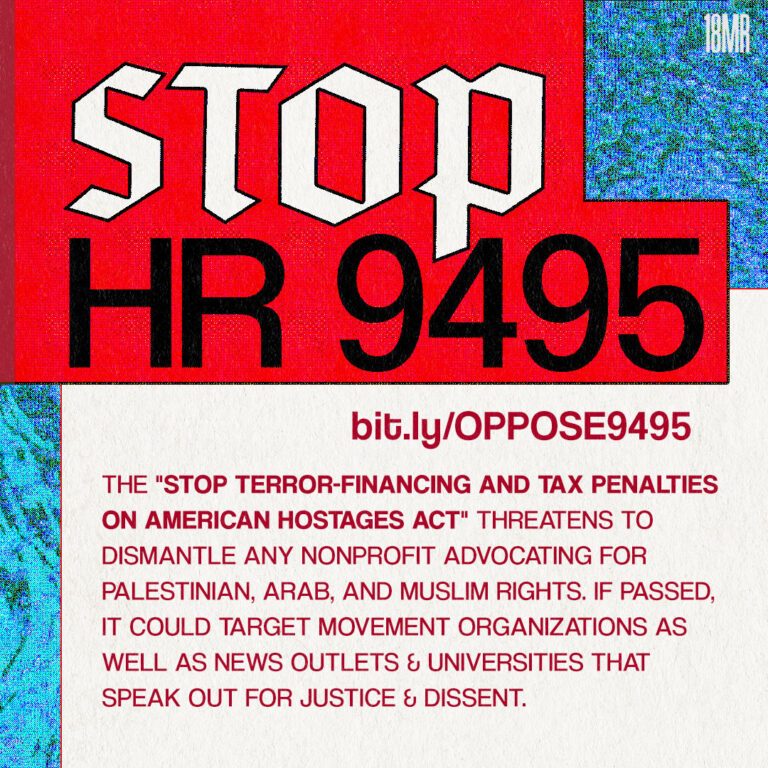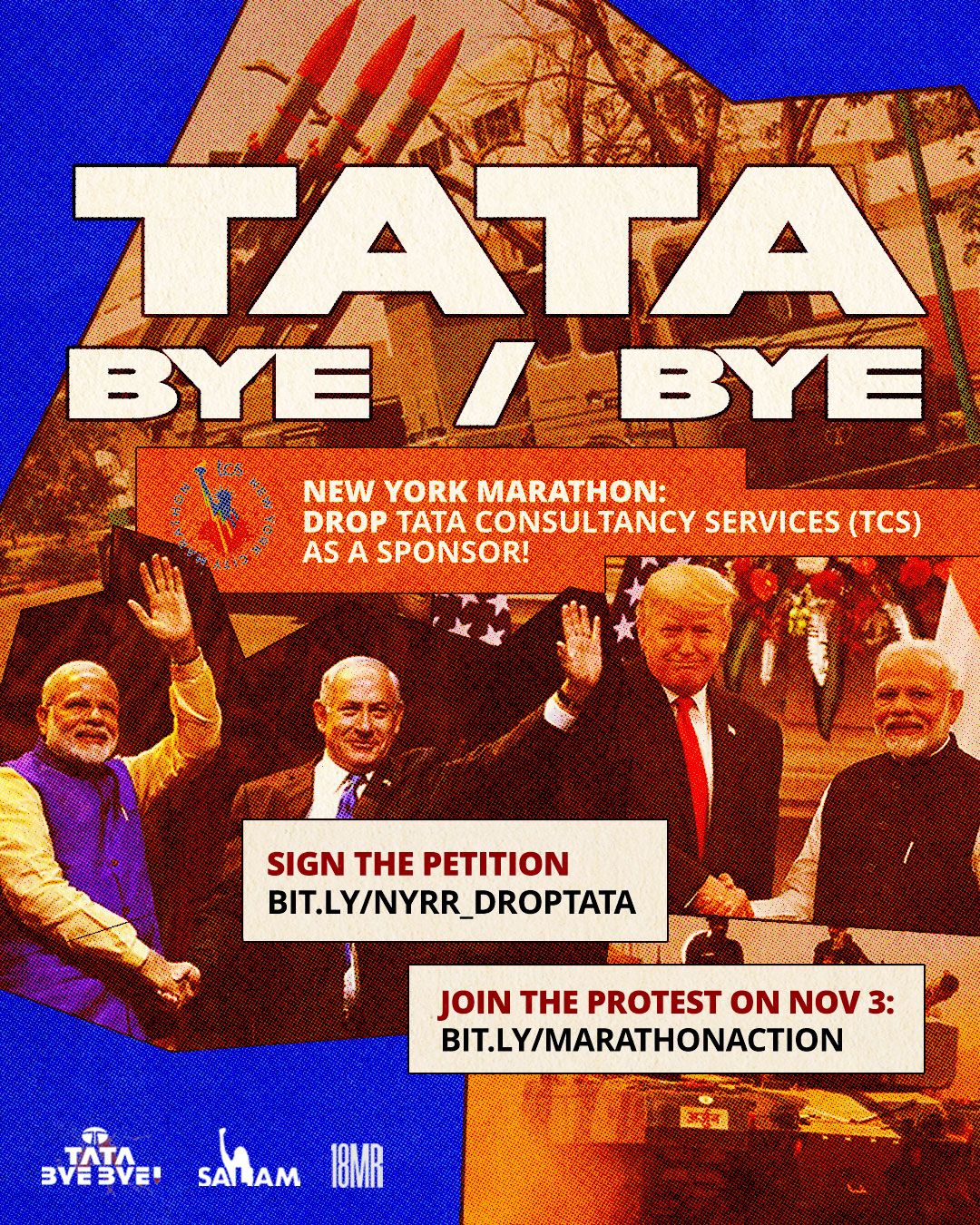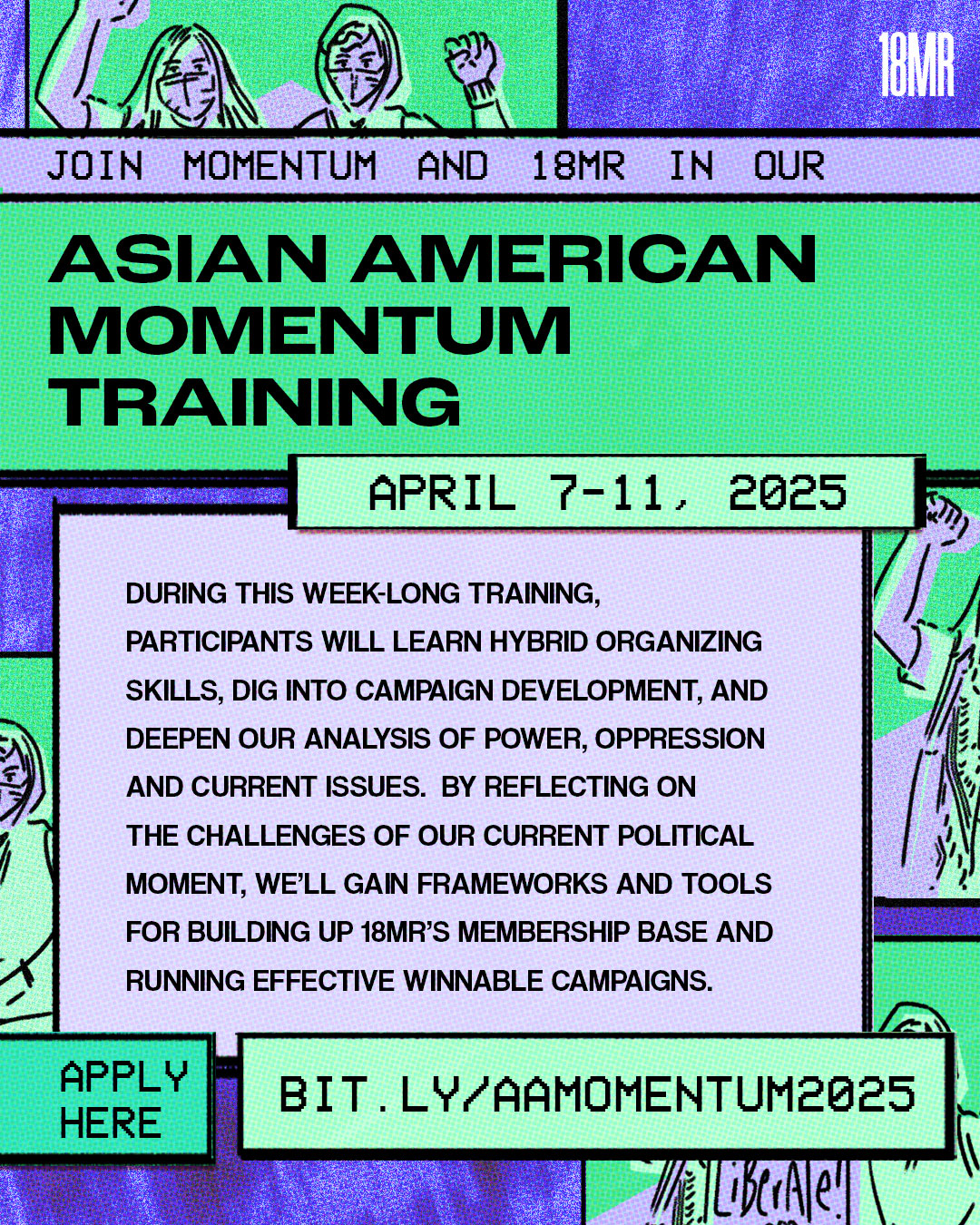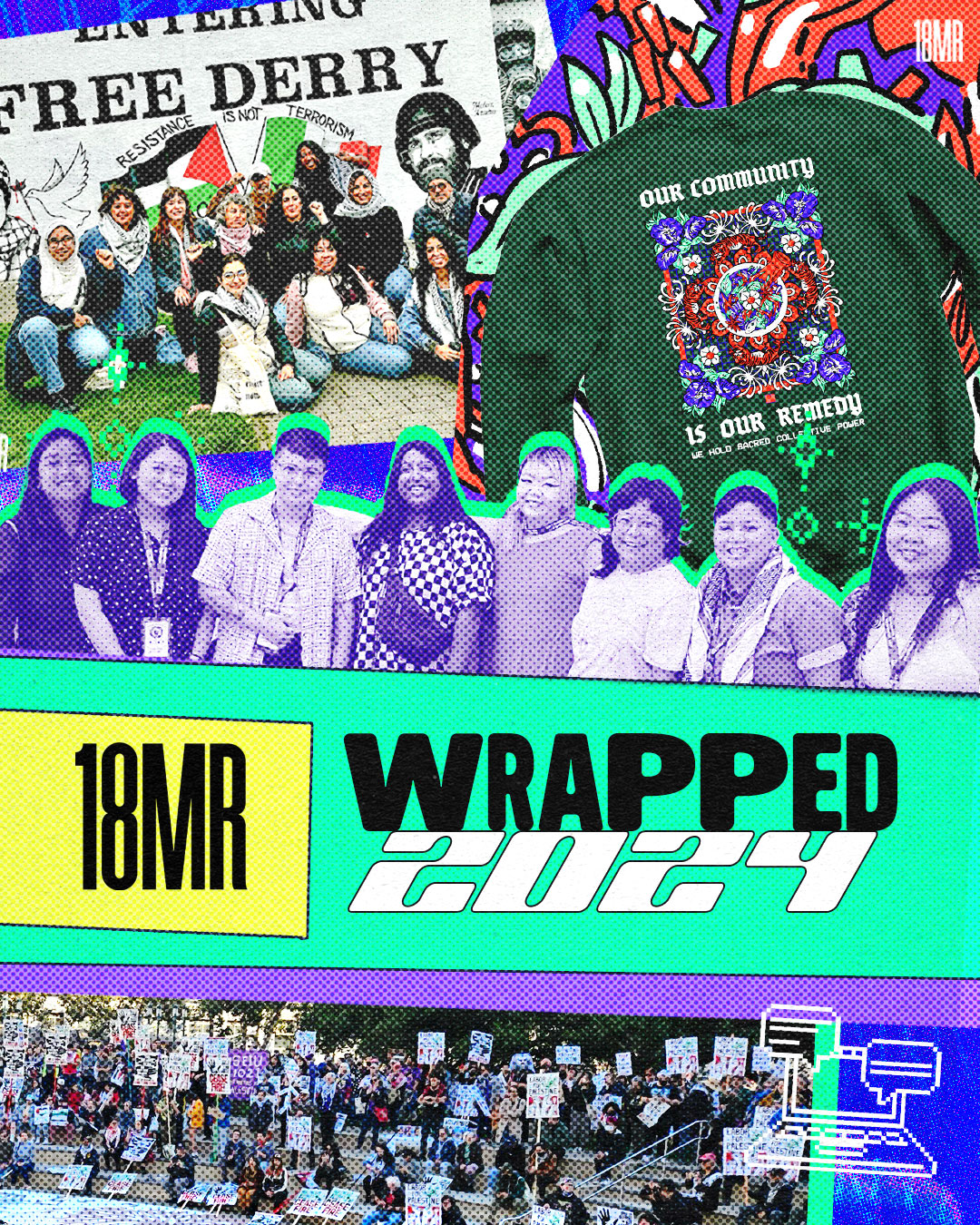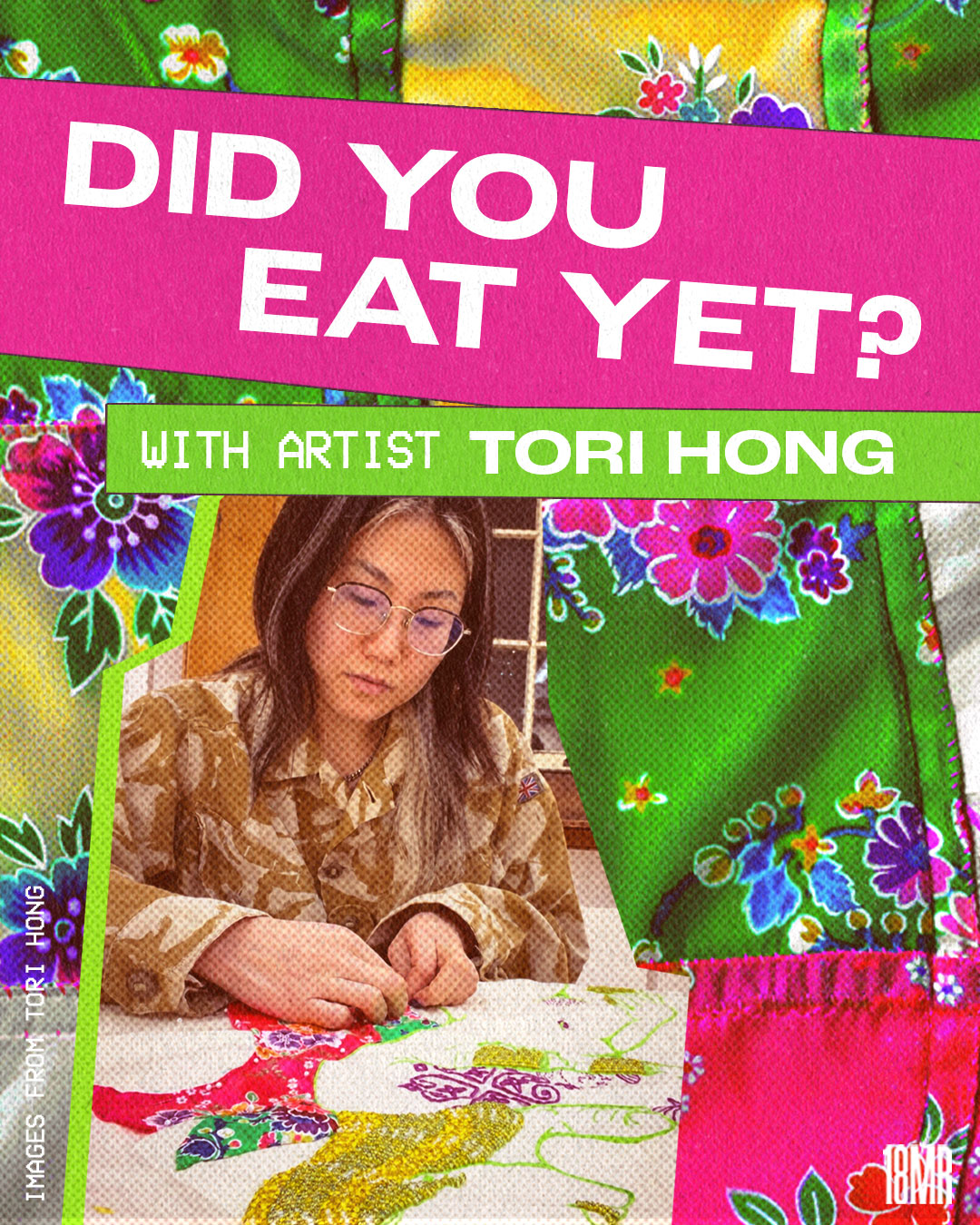This November, 18MR’s Campaigner Laura Li and I were welcomed by the Kia’i at Mauna Kea.
As Asian Americans, we were honored to be able to support and lift up the Kānaka Maoli’s fight to protect this sacred place.
It’s been five months since the Kia’i (Kānaka Maoli protectors) set up camp to defend the sacred Hawaiian mountain, Mauna Kea. Since then, hundreds of Kānaka Maoli have set up a pu’uhonua (place of refuge) on the Mauna Kea access road complete with food, shelter, and provisions. Organizers have founded Pu‘uhuluhulu University to offer de-colonial education, and kūpuna continue to hold space for ceremony, song, dance, and announcements–all while blocking construction of the Thirty Meter Telescope.

After weeks of emails, texts, and calls Laura and I arrived on Day 114 of the protest to finally meet Yvonne “Von” Mahelona, a young activist who supports logistics coordination for Pu’uhonua o Pu’uhuluhulu. Von has been at the Mauna since July and spends her time making sure each station is stocked with necessary supplies, keeping everyone fed, healthy and warm, and working the information and welcome booth. She orients folks coming into the pu’uhonua for the first time, educates tourists, receives donations, and answers any questions people have about the pu’uhonua.

Upon arrival, we learned that the Kia’i commits to the mountain three times a day at 8 am, 12 pm, and 5 pm through ceremony. Driven by “Aloha ʻĀina”, which literally means “love of the land,” ceremony is held on the access road and is full of singing, dancing, and palpable reverence for the land and one another. On the day we visited, ceremony was led by Aunty Pua Case, a life long water protector and movement leader. Near the ceremony’s end we were invited alongside other comrades, friends, and visitors to join and learn hula dances.
As Aunty Pua closed the ceremony she told us:
“We are the guardians who stand tall as mountains, unshakable. We are the protectors of the mountain Mauna Kea and we will rise like a mighty wave.”
After morning ceremony each person broke away to attend to a task, from organizing written statements for the next day’s hearing to teaching hula. Everyone at the pu’uhonua moves with purpose.

Throughout the pu’uhonua we saw rules of conduct, one among them “BE PONO.” Pono, while having 83 English translations available online, we are told generally means to “be good.” Von explains to us that the Mauna Kea movement practices “kapu aloha always.” Kapu aloha is an evolving code of conduct of the Kanaka Maoli. It is expressed politically through non-violent direct action and ceremonially through behavioral conduct in alignment with Kanaka Maoli cultural practices and notions of the sacred.

During our day on the Mauna, we were able to see what is often lost in mainstream media coverage and online reshares. Their protest is not an occupation, it is a reclamation. It is led by Kānaka Maoli, not “locals.” It is intergenerational. It is led by women. It brings people from all over the world to the Mauna. What we were able to witness on the Mauna was not just the resistance of Kanaka Maoli protecting their sacred land, but the incredible power of Indigenous self-governance. It is a movement dedicated to healing the traumas of colonialism and genocide.

by Bianca Nozaki-Nasser
Through social media, we have been able to watch the continued denial of Indigenous peoples’ right to self-determination over land use in real-time. Mauna Kea is a precedent-setting movement that will not only determine the future of the Mauna but will impact the future of land usage which respects, preserves and honors Indigenous people and their history, culture, and environmental justice leadership.

Momentum around this issue has been building for decades, however this year the combination of the tireless work of Kānaka Maoli and social media networks has allowed the movement to protect Mauna Kea to grow from a locally known issue to an international story. With this in mind, we asked Aunty Pua: what does the Mauna need from all of us standing in solidarity with them? Her answer was that whether you are Kānaka Maoli, Indigenous, or non-Native, your energy is important in supporting the preservation of the Mauna. Here are some ways that you can help support:
Learn
The fight to protect Mauna Kea did not start in July 2019. Kānaka Maoli and their allies have been working for generations to gain stewardship of their land. Oiwi TV has created a complete timeline of the issue going as far back as 1960 through the present day. Read up on this history to better understand the depth and commitment of this movement.
Donate
Support organizations on the frontlines. The current cost of propane alone for the pu’uhonua is $1100 a week. This effort is completely volunteer-run and funded. The movement of the Mauna has created three places for folks to donate funds that directly support their work:
- HULI provides logistical support;
- The Aloha ‘Āina Support Fund prioritizes funding for frontline logistics including a community bail fund;
- And you can also mail supplies and donations directly to the Mauna Medic team.
Share
It is absolutely crucial that Kānaka Maoli gain recognition and that the call to protect Mauna Kea accelerates. Sharing updates from people on the ground continues to be important, as we know major news outlets often do not represent the views or needs of those on the front lines. Sharing helps to keep this a relevant call to action for us all. You can follow the hashtags and accounts associated with the Kia’i and share their content:
- Facebook: Pu’uhonua o Pu’uhuluhulu Maunakea, Protect Mauna Kea, Actions for Mauna Kea
- Twitter: @puuhuluhulu, @protectmaunakea
- Instagram: @puuhuluhulu, @protectmaunakea, @puacase
From Mauna Kea to #NoDAPL and beyond, it is critically important that as Asian Americans we stand together to protect Indigenous sovereignty. Laura and I, and the entire 18MR team are sincerely grateful to everyone on the Mauna for welcoming us, teaching us, and sharing their sacred space.

